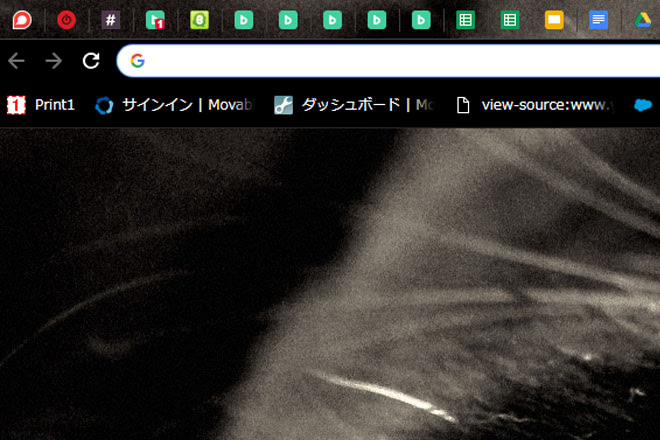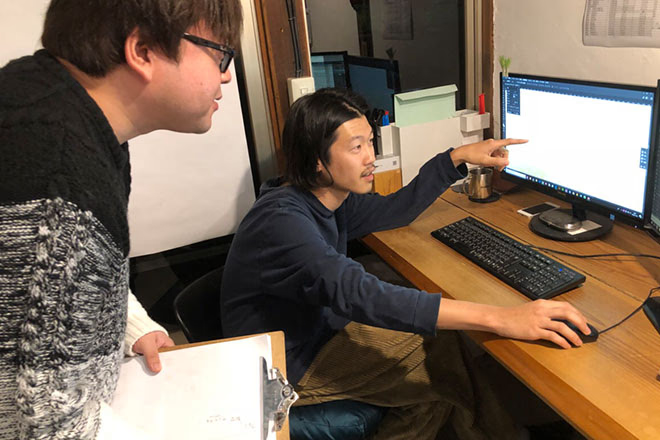こんにちは。Webマスターサポート部の大坂です。
早いもので、コーディングファクトリー部(以下CF部)からWebマスターサポート部(以下WS部)に異動して、1年が経とうとしています。まだまだいろんな知識を吸収している最中ですが、サイト運用の大変さと楽しさを日々実感(痛感?)しています。
元々CF部でやっていた通常の「Web制作」と、WS部が担う「運用」は、どんな風に違うのか。
今回は、運用という仕事に一年間向き合ってみて感じる運用業務の大変な部分や、運用制作において普段自分が工夫していることを紹介したいと思います。
運用するうえで大変なのは「優先順位」
基本的にはCF部の時とやっていることは変わりません。私の作業範囲は「ディレクション・コーディング」両方ともあります。ただ、大きく違うのは一つの作業単位が細かく、求められるスピードが早いことです。通常のWeb制作であれば、受注したページ数を納期までに黙々と作っていけばいいのですが、運用業務の場合、「明後日までに仕様変更したいので、今日中に見積もりがほしい」などの状況も発生するので、予定していた作業の手を止めてでも優先して対応する必要が出てきます。
どの対応から処理するかが特に難しく、優先度の高い作業ばかり行っていると、元々予定していた作業に手がつかなくなったり、悩ましいことも。遅くなった帰りの車の中ではよく一人振り返り反省会をしています。
制作と運用との違いで一番大きく感じる部分
通常のWeb制作と運用業務の進め方で一番大きく違うのは、メインの連絡手段としてbacklog(プロジェクト・タスク管理ツール)を使用することが増えたことです。
backlog 自体はCF部の頃から使用することはありましたが、お客様と制作ファイルを共有するために Git のみ使用し、基本の連絡はメールにて行うなど制作の補助として使用することが多かったです。でも、今では連絡は全てbacklogで行うことも少なくないです。
メールに比べて反応・対応速度は良くなったと実感しています。
まず一日の初めに案件のbacklogを並べて自分宛ての内容で未読になっているものを確認します。日中コーディングを行いながらChromeで動作確認をしている際にも、backlogの通知が来たらその都度確認するようにしています。この「都度確認」するのは、運用をやる上ではすごく大事なことで、通常のWeb制作をやっていた時とは大きく変わった部分です。
夕方、全てのbacklog通知が収まると、「今日も一日頑張ったな」とホッとする瞬間でもあります。

backlogの未読お知らせサインが出たらすぐ確認します。
運用制作において自分が大事にしていること
サイト運用の制作においても変化はありました。運用するうえで自分が大事にしていることが2つあります。
1. コードから汲み取ることが多くなった
運用という性質上、既に組んであるコードから読み取ってコーディングをすることが増えました。これはゼロからページを制作する通常の制作とは大きく異なる点です。
コーディングをしていてふと思うことがあるのですが、このコードを確認する作業が、私の好きな「将棋の棋譜並べ」に近いものがあるなと思います。「棋譜並べ」とは棋譜(対局者が指した手順を記したもの)の手順を辿りながら再現して並べることで、その意図を考えるという学習法です。

棋譜もコーディングデータもあくまで記号の羅列ですが、「あの人はこの書き方はしない」と言いきれてしまうような人間らしさが出るところが非常に面白いなと思います。
コーディングで言えば「ここはスライダーのJSを入れる前提で組んであるな」「別ページで同じクラス命名規則でコーディングしていた場所があったな…モジュール集には無かったけどこの部分のみであれば汎用的に使えるようにスタイルも書いてあるか確認してみよう」などコードから読み取って制作を進めることもあります。
2. 「作った先」を考えることが増えた
たとえばLP制作であれば、そのページの仕様に注力して制作を進めることが大事ですが、運用の場合は更にプラスして「このページが運用されるにあたって予測されることを想定する」ことが大事になります。
先の作業を想定して「今組んであるコードだと、細かく更新作業を入れるのが大変になりそう。今後もこのページを月1で更新を行う場合工数が掛かり過ぎてしまうから、画像の部分をデバイステキストに置き換えられるか提案しよう」など、極力次の作業者に回すボール(作業ボリューム)を小さくするように心掛けています。
ちょっとしたことかもしれませんが、このようなことを丁寧に積み重ねていくことが、運用をする上では大切だと感じています。
運用チームの一員として

デザイナーの浅田くんとはよくWebページ上での表示について擦り合せを行います。
自分としてはまだまだ運用という大きな山を登り始めたぐらいの気持ちでは居たのですが、つい先日同じWS部のメンバーに「大坂さん、もう3年は居るように感じる」と言われることがありました。
安定感があるということなのか、どういう意図なのかは図りかねますが、運用を行うチームの一員として認められた気がして嬉しくなりました。
次はお客様に同じことを言われるように、これからも頑張りたいなと思います。

